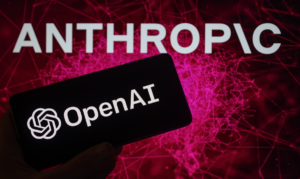OpenAI Claims DeepSeek May Have Inappropriately Collected Its Data

OpenAI Investigates Possible Data Breach by Chinese Start-Up DeepSeek
OpenAI, the renowned artificial intelligence company based in San Francisco and valued at $157 billion, is currently examining claims that Chinese-based start-up DeepSeek may have violated its terms of service. Specifically, OpenAI is looking into whether DeepSeek improperly utilized data generated by OpenAI’s A.I. models for its own system development.
What Are the Allegations Against DeepSeek?
DeepSeek is accused of "distilling" OpenAI’s data, a technique commonly used in the A.I. field. Distillation involves extracting knowledge from one model to enhance another. However, OpenAI explicitly prohibits the use of its generated data for creating competing technologies. This restriction is outlined in its terms of service, which are designed to protect its intellectual property and maintain a competitive advantage.
Statements from OpenAI
Liz Bourgeois, a spokesperson for OpenAI, shared insights into the situation. She mentioned that groups in the People’s Republic of China are actively applying various methods, such as distillation, to replicate advanced A.I. models developed in the U.S. Bourgeois said, “We know that groups in the P.R.C. are actively working to use methods, including what’s known as distillation, to replicate advanced U.S. A.I. models.” OpenAI is committed to taking strong measures to safeguard its technology and is collaborating closely with the U.S. government to protect its most advanced models.
Impact on the Tech Industry
DeepSeek’s recent A.I. technology release has stirred significant concern within Silicon Valley. The company launched systems that reportedly performed on par with existing market leaders, which caused a ripple effect in U.S. financial markets. The possibility of a foreign entity developing highly competitive A.I. technology has raised alarms among American tech companies, prompting fears about an emerging threat.
The Response from DeepSeek
As of now, DeepSeek has not provided any comments or responses concerning the ongoing investigation. The lack of communication from the start-up has left many unanswered questions about its practices and whether it has indeed infringed upon OpenAI’s intellectual property.
The Broader A.I. Landscape
The issue at hand has broader implications for the global A.I. market:
Intellectual Property Risks: Companies are becoming increasingly wary of how their proprietary data might be used or misappropriated by competitors, particularly those outside the U.S.
Competitive Pressures: With rapid advancements in A.I. technologies on a global scale, businesses feel pressured to not only innovate but also protect their original creations effectively.
- Regulatory Discussions: Instances like this could lead to more stringent regulations on data usage and sharing, especially when it involves cross-border operations.
The Role of Distillation in A.I.
Distillation is a key technique in the development of artificial intelligence where large models distilled into smaller, more efficient ones retain the essential knowledge of their larger counterparts. While this technique is widely accepted in the industry, its implementation raises ethical questions when it involves data originally derived from another organization’s proprietary systems.
Conclusion on Future Protections
As the situation with DeepSeek unfolds, it highlights the need for companies to establish clear boundaries on data usage and the sharing of A.I. technologies. This incident serves as a reminder of the ongoing challenges faced in protecting A.I. innovations from potential infringements, particularly in an increasingly interconnected world.






